#not my meta
Explore tagged Tumblr posts
Note
I saw post with link to theory that Oda used speech bubbles to hide shanks actual and I can’t find it
It definitely used the moment where Whitebeard asks about buggy and some other
Do you think there is a point in that theory? Would it be intentional? I do think the placement is weird for an accident but I am shuggy obsessed so….
It also would go nice with the fact that we still didn’t see shanks reaction at their “breakup “
ah, i gotchu, i saw that ask too, these are the tweets in question:

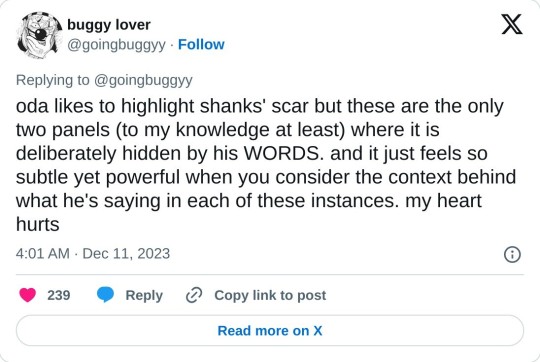
i've discussed previously that there could be a number of reasons shanks' reaction to the roguetown fight with buggy is obscured/hidden from us, but these panels… really did not need to be arranged this way?? like, i agree with goingbuggyy, it definitely feels like an intentional artistic choice and one that must have been a pita to adapt to the anime.
and given these panels are shanks
trying to convince luffy that it's nbd shanks just lost an arm
telling whitebeard that he hasn't seen buggy in twenty-plus years
i think their “hiding vulnerability behind lightheartedness” take is a totally valid interpretation
#tos answers#one piece#shanks#of course i am also shuggy obsessed so i may be biased ¯\_(ツ)_/¯#not my meta#—shanks hides his feelings#—shanks & his lost arm#—the shuggy roguetown breakup#.1 (romance dawn)#.434 (shanks & whitebeard chat)
276 notes
·
View notes
Text
i love characters who do the “i worship the myth i make of you” and in turn dehumanize and get wrong the object of their devotion and love. yes project a thing that does not exist onto a pedestal and kneel at it like it is your altar. this will surely not blow up in both of your faces eventually
30K notes
·
View notes
Text
Reblogging this for myself cause I've been on the GO brainrot recently and this is one of the best works of character/story/historical analysis I have ever seen for this show!! Would give it a round of applause I love it so much
Awhile ago @ouidamforeman made this post:
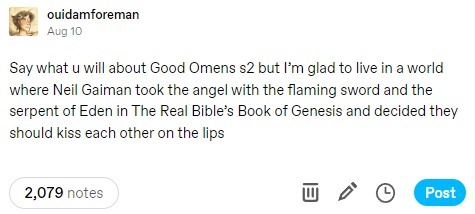
This shot through my brain like a chain of firecrackers, so, without derailing the original post, I have some THOUGHTS to add about why this concept is not only hilarious (because it is), but also...
It. It kind of fucks. Severely.
And in a delightfully Pratchett-y way, I'd dare to suggest.
I'll explain:
As inferred above, both Crowley AND Aziraphale have canonical Biblical counterparts. Not by name, no, but by function.
Crowley, of course, is the serpent of Eden.
(note on the serpent of Eden: In Genesis 3:1-15, at least, the serpent is not identified as anything other than a serpent, albeit one that can talk. Later, it will be variously interpreted as a traitorous agent of Hell, as a demon, as a guise of Satan himself, etc. In Good Omens --as a slinky ginger who walks funny)
Lesser known, at least so far as I can tell, is the flaming sword. It, too, appears in Genesis 3, in the very last line:
"So he drove out the man; and placed at the east of the garden of Eden Cherubims, and a flaming sword which turned every way, to keep the way of the tree of life." --Genesis 3:24, KJV
Thanks to translation ambiguity, there is some debate concerning the nature of the flaming sword --is it a divine weapon given unto one of the Cherubim (if so, why only one)? Or is it an independent entity, which takes the form of a sword (as other angelic beings take the form of wheels and such)? For our purposes, I don't think the distinction matters. The guard at the gate of Eden, whether an angel wielding the sword or an angel who IS the sword, is Aziraphale.
(note on the flaming sword: in some traditions --Eastern Orthodox, for example-- it is held that upon Christ's death and resurrection, the flaming sword gave up it's post and vanished from Eden for good. By these sensibilities, the removal of the sword signifies the redemption and salvation of man.
...Put a pin in that. We're coming back to it.)
So, we have our pair. The Serpent and the Sword, introduced at the beginning and the end (ha) of the very same chapter of Genesis.
But here's the important bit, the bit that's not immediately obvious, the bit that nonetheless encapsulates one of the central themes, if not THE central theme, of Good Omens:
The Sword was never intended to guard Eden while Adam and Eve were still in it.
Do you understand?
The Sword's function was never to protect them. It doesn't even appear until after they've already fallen. No... it was to usher Adam and Eve from the garden, and then keep them out. It was a threat. It was a punishment.
The flaming sword was given to be used against them.
So. Again. We have our pair. The Serpent and the Sword: the inception and the consequence of original sin, personified. They are the one-two punch that launches mankind from paradise, after Hell lures it to destruction and Heaven condemns it for being destroyed. Which is to say that despite being, supposedly, hereditary enemies on two different sides of a celestial cold war, they are actually unified by one purpose, one pivotal role to play in the Divine Plan: completely fucking humanity over.
That's how it's supposed to go. It is written.
...But, in Good Omens, they're not just the Serpent and the Sword.
They're Crowley and Aziraphale.
(author begins to go insane from emotion under the cut)
In Good Omens, humanity is handed it's salvation (pin!) scarcely half an hour after losing it. Instead of looming over God's empty garden, the sword protects a very sad, very scared and very pregnant girl. And no, not because a blameless martyr suffered and died for the privilege, either.
It was just that she'd had such a bad day. And there were vicious animals out there. And Aziraphale worried she would be cold.
...I need to impress upon you how much this is NOT just a matter of being careless with company property. With this one act of kindness, Aziraphale is undermining the whole entire POINT of the expulsion from Eden. God Herself confronts him about it, and he lies. To God.
And the Serpent--
(Crowley, that is, who wonders what's so bad about knowing the difference between good and evil anyway; who thinks that maybe he did a GOOD thing when he tempted Eve with the apple; who objects that God is over-reacting to a first offense; who knows what it is to fall but not what it is to be comforted after the fact...)
--just goes ahead and falls in love with him about it.
As for Crowley --I barely need to explain him, right? People have been making the 'didn't the serpent actually do us a solid?' argument for centuries. But if I'm going to quote one of them, it may as well be the one Neil Gaiman wrote ficlet about:
"If the account given in Genesis is really true, ought we not, after all, to thank this serpent? He was the first schoolmaster, the first advocate of learning, the first enemy of ignorance, the first to whisper in human ears the sacred word liberty, the creator of ambition, the author of modesty, of inquiry, of doubt, of investigation, of progress and of civilization." --Robert G. Ingersoll
The first to ask questions.
Even beyond flattering literary interpretation, we know that Crowley is, so often, discreetly running damage control on the machinations of Heaven and Hell. When he can get away with it. Occasionally, when he can't (1827).
And Aziraphale loves him for it, too. Loves him back.
And so this romance plays out over millennia, where they fall in love with each other but also the world, because of each other and because of the world. But it begins in Eden. Where, instead of acting as the first Earthly example of Divine/Diabolical collusion and callousness--
(other examples --the flood; the bet with Satan; the back channels; the exchange of Holy Water and Hellfire; and on and on...)
--they refuse. Without even necessarily knowing they're doing it, they just refuse. Refuse to trivialize human life, and refuse to hate each other.
To write a story about the Serpent and the Sword falling in love is to write a story about transgression.
Not just in the sense that they are a demon and an angel, and it's ~forbidden. That's part of it, yeah, but the greater part of it is that they are THIS demon and angel, in particular. From The Real Bible's Book of Genesis, in the chapter where man falls.
It's the sort of thing you write and laugh. And then you look at it. And you think. And then you frown, and you sit up a little straighter. And you think.
And then you keep writing.
And what emerges hits you like a goddamn truck.
(...A lot of Pratchett reads that way. I believe Gaiman when he says Pratchett would have been happy with the romance, by the way. I really really do).
It's a story about transgression, about love as transgression. They break the rules by loving each other, by loving creation, and by rejecting the hatred and hypocrisy that would have triangulated them as a unified blow against humanity, before humanity had even really got started. And yeah, hell, it's a queer romance too, just to really drive the point home (oh, that!!! THAT!!!)
...I could spend a long time wildly gesturing at this and never be satisfied. Instead of watching me do that (I'll spare you), please look at this gif:
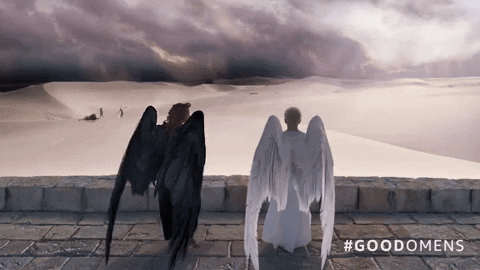
I love this shot so much.
Look at Eve and Crowley moving, at the same time in the same direction, towards their respective wielders of the flaming sword. Adam reaches out and takes her hand; Aziraphale reaches out and covers him with a wing.
You know what a shot like that establishes? Likeness. Commonality. Kinship.
"Our side" was never just Crowley and Aziraphale. Crowley says as much at the end of season 1 ("--all of us against all of them."). From the beginning, "our side" was Crowley, Aziraphale, and every single human being. Lately that's around 8 billion, but once upon a time it was just two other people. Another couple. The primeval mother and father.
But Adam and Eve die, eventually. Humanity grows without them. It's Crowley and Aziraphale who remain, and who protect it. Who...oversee it's upbringing.
Godfathers. Sort of.
27K notes
·
View notes
Text

Expertise can't help you here.
#dungeon meshi#kabru#laios touden#falin touden#Happy Thistle Thursday once again. Have I been holding on to this comic for several weeks? Sure have!#I forgot how long it takes for Chimera Falin to come into play.#I still really love my 'better drawn' art of her - unfortunately it was several weeks too early for the anime only folks.#Slowly getting the hang of drawing Laios. I don't know why I struggle so much but I am getting...somewhere.#Meta time: God damn I love how the chimera shows off the expertise and gap between Kabru and Laios.#The truth is: they are both *right* and they are both *wrong*.#This creature is a combination of monster and human and they only have the skillset to deal with one of those.#Kabru goes for all the human vitals - but she isn't human.#Laios tries to approach her as a monster and is struck down by the humanity he sees in her.#She is something new that defies what they *both* understand about the world. And that makes her such a perfect antagonist.#The damsel was the dragon all along!#...She is really so cute though. Terrifying! But adorable. I am so excited to see the boom of fanart for her.
47K notes
·
View notes
Text
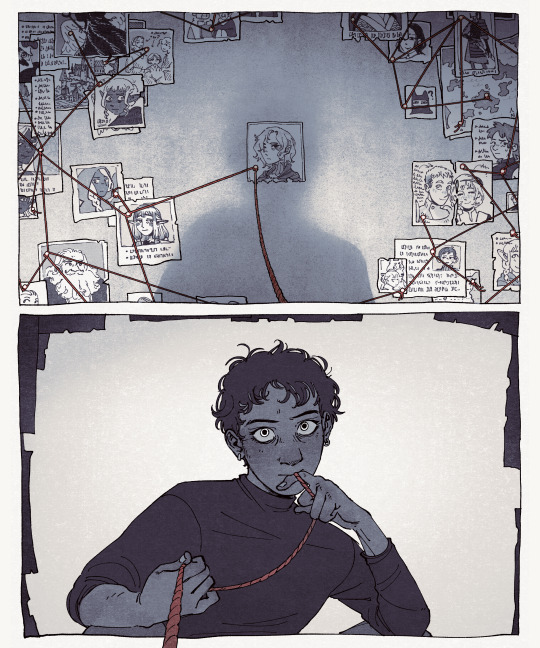
a face you'd find on the side of a milk carton
#dungeon meshi#dunmesh#kabru#mithrun#kabumisu#my art#put a lot of unnecessary thought into how unconnected to portray him & how meta vs literal to make the other entries.#all of the notes mean something <3 its not that deep but it is meant to hold up to being pored over
34K notes
·
View notes
Text
yes, percy rose through the ranks of new rome disturbingly fast. no, jason did not do the same at camp half blood. yes, percy's rise to leadership at both camps took about two weeks and was completely unplanned. no, the same cannot be said for jason. his rise was carefully planned and took over a decade. they're both children of the big three, but where percy thrums with raw power, jason is a sword honed by zeus and hera. where percy is a survivor, jason is a weapon. where percy is a cycle breaker, jason can't get out. jason's fatal flaw was temptation to deliberate because he never managed to make his own choices. he was every classic definition of a hero rolled into one, and he never questioned it because his happiness came after the responsibility. jason was never going to ascend as fast as percy because jason was raised on hard work and discipline while percy, an abuse survivor and child of poverty, knew when to fight dirty. where jason was a transplant, percy was an invasive species. jason was always going to die because he was never more than a tool for the gods to throw away when he outlived his usefulness, or when he started to question his place. if someone as locked down as jason can question the system, anyone can. now that luke has put thoughts of overthrow in everyone's heads, zeus has to be very careful because while jason was expendable as his weapon, percy was unexpected in every way. zeus has no plan for him. when percy dies, he will become a martyr, so he can't die, except now everyone knows that percy doesn't want to be a god either. jason had to die, and now percy has to live.
#percy jackson#pjo#percy jackon and the olympians#jason grace#pjo hoo toa#pjo fandom#pjo meta#percy jackson meta#jason grace meta#rrverse#trials of apollo#toa spoilers#heroes of olympus#mine#my meta
14K notes
·
View notes
Text

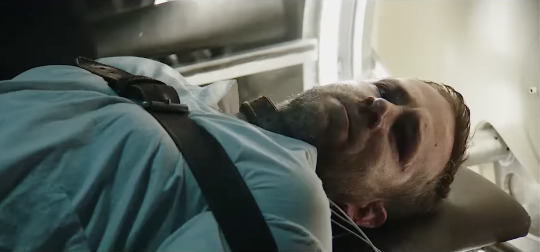
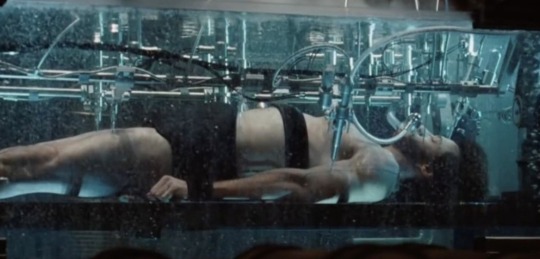
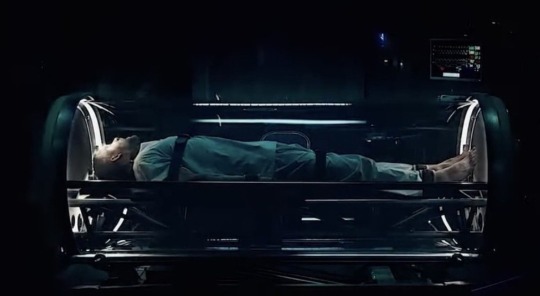
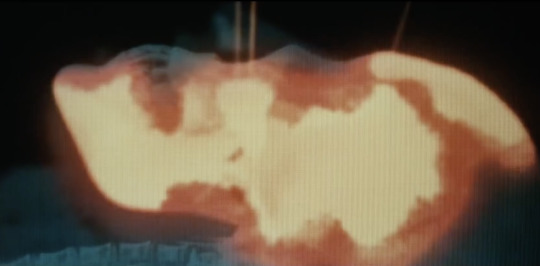

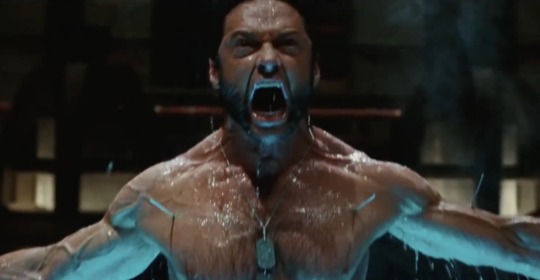


*steeples hands under my chin like i'm sherlock* so you see,
#user: gossippool 😝#gossippool metas#can this be considered meta if i don't say anything#not a day goes by where i do not think about wade's naked fight scene. i am just a girl#i was going to make this a video edit instead to me and the devil because that was the first thing i thought of#but i was lazy! and my editing skills are ass! so#deadpool and wolverine#deadpool & wolverine#deadpool#wade wilson#wolverine#logan howlett#poolverine
16K notes
·
View notes
Text

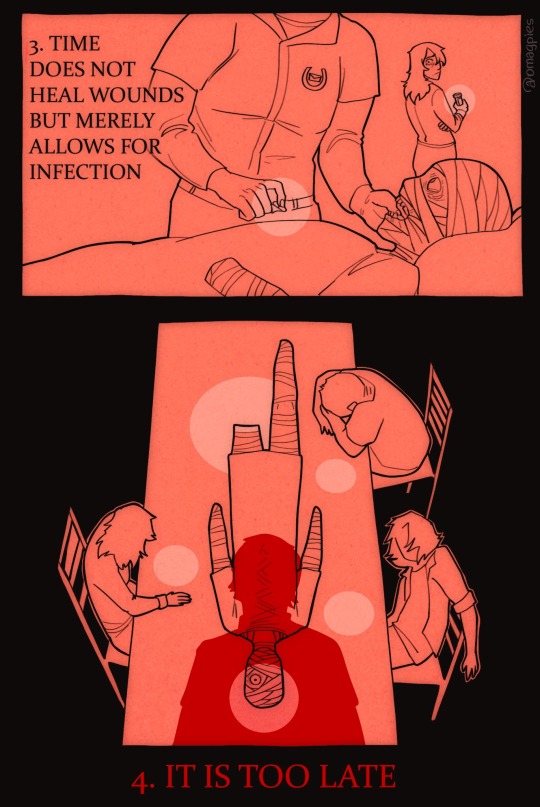
tweet reference under the cut, and the curlya pose is of course ref’s off none other but @joetastic2739 <3

#mouthwashing#curly mouthwashing#anya mouthwashing#jimmy mouthwashing#captain curly#my art#this isn’t some kind of meta about how it’s bad to ship curlya btw#we stan curlya in this house
13K notes
·
View notes
Text
ON the subject of undernegotiated kink in fanfiction. i think we should talk more about how the concept of "not talking about it" is just as much wish fulfillment for some people as "in-depth, therapy-speak conversations where everyone is clear and understood" is for others
like yes, in reality the antidote to shame is open honest conversation with someone who will validate your feelings and wants blah blah blah but SOMETIMES what i want out of my fanfic is characters being understood without having to expose themselves in that way. SOMETIMES it's fun to not dismantle the shame and repression all the way and to instead treat that understanding-despite-not-being-clear as the fantasy
#i fucking HATE talking about my feelings. why would i want to read characters doing it when they could fuck nasty instead.#fandom meta
17K notes
·
View notes
Text
I’m thinking about Wicked tonight, specifically why Elphaba ends up with Fiyero instead of Glinda in the musical despite Elphaba and Glinda having the more well-rounded relationship.
You could chalk it up to the writers wanting a heteronormative ending (and I’m certain that’s part of it) or the fact that Elphaba and Fiyero had a love affair in the book. But I think there’s a bit more nuance to it.
The whole point of Glinda’s character is that she upholds the status quo of Oz. No matter how much she loves Elphaba or sympathizes with the plight of the Animals, she will always align herself with the current system and those in power. And as long as that remains the case, a relationship between her and Elphaba is futile because Elphaba will not give up her cause.
Elphaba and Glinda represent to different ends of a spectrum. Elphaba resists the oppressive forces in Oz, while Glinda upholds them. But Fiyero is somewhere in the middle. He starts out privileged and carefree like Glinda, but quickly turns to Elphaba’s side. He does become Captain of the Guard, but only to find Elphaba and help her evade arrest.
And therein lies the difference between Glinda and Fiyero as love interests to Elphaba. Glinda would never sacrifice her title as “the Good Witch” and all her power granted from the Wizard, even if it meant helping Elphaba. Fiyero, on the other hand, does give up his privilege, his title, and even his human form for Elphaba. Glinda clings to what the status quo gives her, while Fiyero ultimately rejects it.
Yes, the writing around Elphaba and Fiyero’s romance is a bit rushed and doesn’t have the same gradual development that Elphaba and Glinda have. And yes, I have no doubt heteronormativity played a role in giving Elphaba a male love interest in the end. But I see a lot of people write off Fiyero and his relationship with Elphaba and I just don’t agree.
Why does Elphaba end up with Fiyero instead of Glinda? Because Fiyero makes the sacrifices that Glinda wasn’t willing to.
#also Elphaba and Fiyero are bi4bi to me#They’re not a straight couple#sorry if this an obvious take for me to make#But I had to get it out of my system#shut up elizabeth#Wicked#wicked 2024#wicked movie#wicked the musical#Elphaba#glinda#fiyero x elphaba#fiyero#wicked fiyero#ariana grande#cynthia erivo#jonathan bailey#wicked spoilers#fiyeraba#wicked meta
10K notes
·
View notes
Text
All true! Their relationship is absolutely STEM nerd who has strong opinions about ethics and art/humanities nerd who has a reasonable foundation for science/technology. There's overlap but they have very different areas of expertise and a pretty much endless font for discussion and thinking.
Also, Spock did not start murmuring "Good, good ... he knows, he has reasoned it out ... yes, yes ..." on the damn bridge in front of everyone as they all watched the Metrons livestream Kirk defeating the Gorn by reinventing gunpowder and making a bazooka out of bamboo for Spock's attraction to him to be reduced to some nerd4himbo nonsense :(
(Bonus: nobody else knew what the fuck Kirk was even doing or why he started tasting powder on a rock, but Spock was like "he's checking if it's potassium nitrate, hell yeah, now he's gathering sulfur and coal and using those random diamonds on this weird planet as bullets. He's so smart <3")
I mean, that's in addition to the copious evidence of Kirk being a giant nerd about philosophy and literature and his general calculating cleverness, but I just feel that, um, Spock is not exactly subtle here.
Sometimes via faulty ship tropes I think people forget that Kirk is also like a total genius and nerd prodigy and that's very sad to me. More fan content where Spock is explicitly attracted to Kirk's intelligence and not just his personality, where they have fun little book club meetings and talk theory to each other while the rest of the bridge is lost because Spock and Kirk are on such a similar mental wavelength they can almost reply before the other person has even finished. MORE SMART KIRK !!!!!
#obviously yes it's important that spock pretty evidently experiences kirk's presence and relationship to him as like#having acceptance admiration and unconditional love directly injected into his veins 24/7 like he's experiencing emotional photosynthesis#but also it would not matter as much if he didn't think the world of kirk's abilities and intelligence#(or kind of get off in public to him being brilliant and resourceful. as the case may be.)#ngl it's not really a surprise that once spock starts mind-melding with him in s3 he ends up doing it more than w/ anyone#across all three seasons. even when he really shouldn't.#and it follows very naturally from all the scenes of them just exchanging a glance w/o a word and falling into sync#because they're already so much on the same wavelengths!#anghraine babbles#not my meta#anghraine's meta#star peace#otp: the premise#star trek: the original series#spock#st fanwank#c: who do i have to be#james t kirk#c: i object to intellect without discipline#but he sure doesn't mind it WITH discipline ;)#tos: s2#tos: arena
2K notes
·
View notes
Text

First of all, WOOHOO a tweet about Sailor Moon got almost 200k likes!
Secondly, YES this is an aspect of Sailor Moon that I've always loved but hesitated to voice just because I don't want to be mistaken for a creep, lol. Both the anime and manga/Crystal reboot utilize nudity not only in an artistic sense, but as a way to represent a character being stripped down to their truest self, the essence of their very soul.
In fact, in the manga, characters in dreams, visions, or in the space between life and death (among other situations) are shown to be entirely naked or are depicted with clothes that seamlessly blend into their bodies.




And of course, the finale of the final arc has Usagi saving the day not through a last-minute power-up form, but by stripping down to her purest, truest self:


Sailor Moon has so many great examples of non-sexual artistic nudity and I hate when people are too immature to see what Naoko Takeuchi was going for.
I also love how, at the same time, Naoko doesn't portray sexuality/sex as something dirty and impure. I've said this before, but in the manga Usagi is heavily implied to be sexually active with Mamoru (in fact, it's outright stated that she's already pregnant with Chibiusa on their wedding day), but in no way does that diminish her role as the purest being in the universe and the star that shines the brightest.
I will keep screaming this into the void forever: Naoko Takeuchi and Sailor Moon really were ahead of their time, and that's why the series still resonates with so many people today.
#sailor moon#bishoujo senshi sailor moon#usagi tsukino#analysis#my analysis#feminism#sex positive#meta#sailor moon meta#1k#2k#5k
6K notes
·
View notes
Text
some food for the 5 six of crows fans on here since i just got clip studio paint and also this flopped absolute balls on instagram


#considering deleting instagram at this point coz fuck meta#my account is @encrypted_cryptid if anyone wants a look at my old art sighs#six of crows#soc#kaz brekker#jesper fahey#shadow and bone#joodles#1K HOLY SHIT#2K !!!
4K notes
·
View notes
Text
#literally. #winchester family values #sam & lucifer #like so significant that the one thing we know factually about sam's hell is one of the more abstract metaphors on the show #I mean obviously there are layers of metaphor to dean's experience but 'put in an awful and targeted situation' #'where you have no meaningful choices but to do awful things in turn' has a lot of direct corollaries #whereas 'gazed upon what man ought not wot of' is a lot more open Imao #no and ALSO. clearly. dry run for purgatory. dean comes back scarred and angry and frightened #and takes that out on sam #and it's not like the show is indifferent to that or congratulatory about it. #but there is a very clear. when dean comes back changed and mean the correct response is for sam to understand and endure it #when sam comes back changed and mean the correct response is for dean to get him under control #and if that means violence and torture and risking sam's life then that's sad but acceptable (via @adihildilid)
also bears repeating that everyone needs to compare sam’s hell arc with dean’s hell arc.
dean: is given the option of ending his own torture by becoming a torturer himself. is part of a system and has a Commander (alastair) to answer to. we are told that he becomes highly skilled at it and we are given specific details about A) his hell timeline, B) what was done to him, and C) how he felt about what he subsequently did to others.
sam: no choice but to suffer endlessly. locked in a box with a violent and vengeful man. for Some Reason the narrative had his period of torture last for significantly (almost unquantifiably) longer than dean’s did. the timeline is fuzzy and the details of the torture - outside of a handful of Jokey allusions to rape - are a mystery. sam never talks about the specifics with anyone across the entirety of the series because A) he presumably lacks the language to do so, B) his trauma doesn’t tend to get spotlighted like that relative to dean���s, and C) who would listen?
dean was a Righteous Soldier who Tragically Broke, and this Wasn’t His Fault. sam was Paying For his Sins and he had the audacity to come out of the experience Wrong (soulless arc) and then Crazy (hallucifer arc).
309 notes
·
View notes
Text
jason's 13 years at the super disciplined camp and several years as a leader of said camp mean it is very unlikely that he is any shade of feral, except for maybe a few minor idiosyncracies that all camp jupiter kids have because they all spent time at the wolf house, but since they all have these traits, they might be considered cultural rather than feral. however, annabeth chase, who was famously left alone until she was seven and was raised by an ancient greek horse man that used to live alone on a mountain, a barely sober god of mental illness, several other mythical beings based on animals, and approximately 37 different traumatized, exhausted, and desperate teenagers at an unregulated summer camp where she learned how to be scary by studying greek monsters, would definitely be somewhere near feral.
#this is me coming out as a feral jason grace hater. he is constantly two things from an OCD meltdown because he was raised to be uptight#annabeth however is and was a little gremlin and you cannot convince me otherwise#the older campers were supposed to babysit her and they came out looking like they just left a war. literally all she wants to do is-#run into traffic on the off chance she finds a monster. the only person who can get her to sit the fuck down and not bite people is luke#pjo#annabeth chase#percy jackson#jason grace#percabeth#heroes of olympus#pjo hoo toa#percy jackson fandom#hoo#pjo fandom#pjo series#percy jackon and the olympians#annabeth pjo#pjo meta#percy jackson meta#mine#my meta
6K notes
·
View notes
Text
“In the war film, a soldier can hold his buddy—as long as his buddy is dying on the battlefield. In the western, Butch Cassidy can wash the Sundance Kid’s naked flesh—as long as it is wounded. In the boxing film, a trainer can rub the well-developed torso and sinewy back of his protege—as long as it is bruised. In the crime film, a mob lieutenant can embrace his boss like a lover—as long as he is riddled with bullets.
Violence makes the homo-eroticism of many “male” genres invisible; it is a structural mechanism of plausible deniability.”
–Tarantino’s Incarnational Theology: Reservoir Dogs, Crucifixions, and Spectacular Violence. Kent L. Brintnall.
#Another day another quote that's been rattling around in my head for an age#Which again sums things up better than I ever could#And of course it's not just about the physical deterioration at the end of the story allowing for intimacy#The idea permeates the whole show#Tozer holding Heather as his exposed brain freezes on the deck#Crozier and Hickey reaching a state of psychological intimacy but only through the violence of the lash#You could argue a link between Hickey and Goodsir too through the intimacy and violence inflicted on Irving#Both his killing and his autopsy#The Terror#The Terror AMC#Meta
41K notes
·
View notes